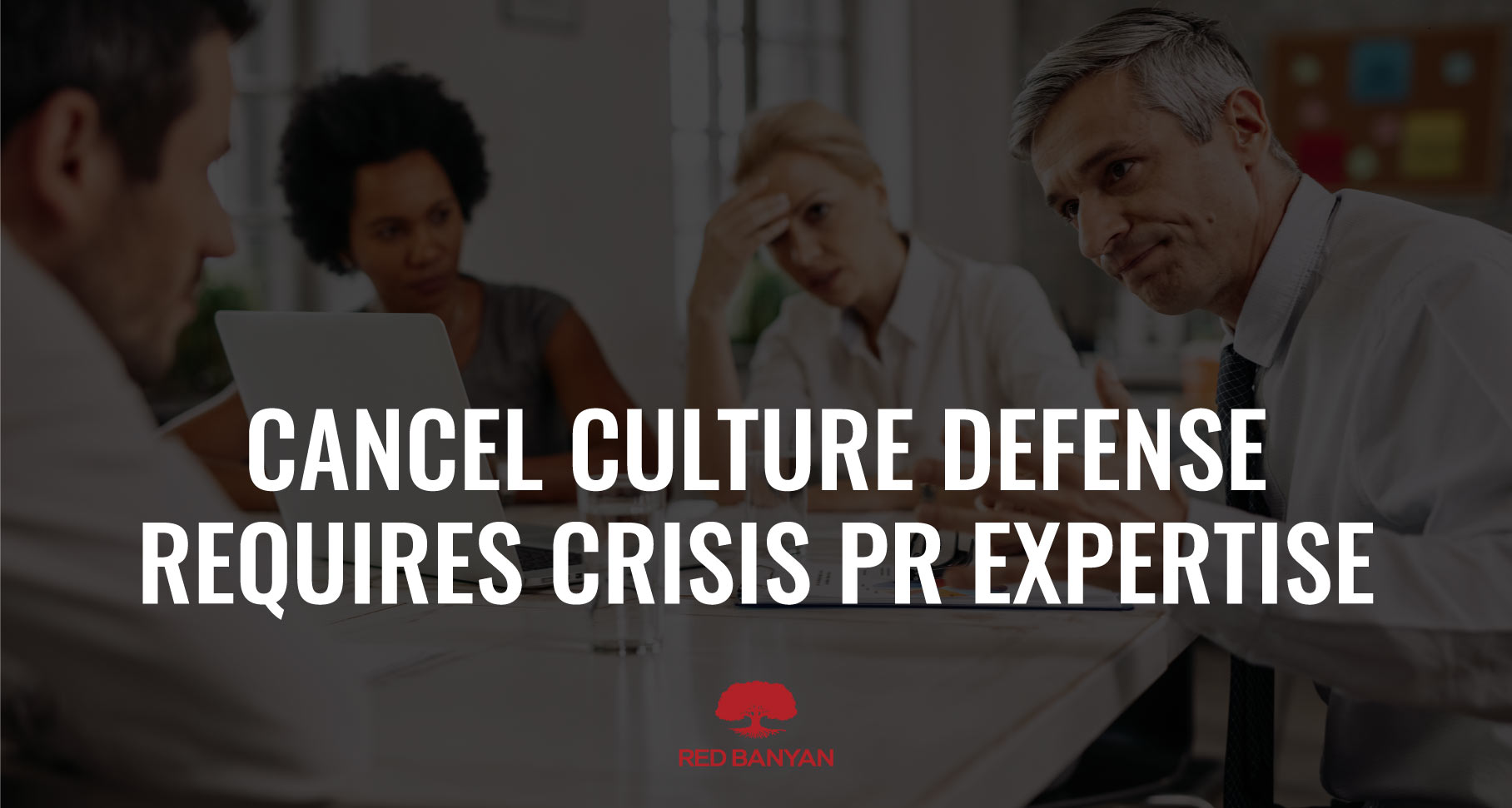Cancel Culture Defense Requires Crisis PR Expertise
November 21, 2023 | Category: Blog, Cancel Culture, Crisis Communications Florida, Crisis PR

Cancel culture has become a hot-button topic, but do you really know what the term means?
The Merriam-Webster online dictionary defines one form of the verb cancel as “to withdraw one’s support for (someone, such as a celebrity, or something, such as a company) publicly and especially on social media.”
It defines cancel culture as “the practice or tendency of engaging in mass canceling as a way of expressing disapproval and exerting social pressure.”
However, cancel culture is a loaded buzz word that has evolved to mean so much more than simply withdrawing support for a person or brand publicly on social media.
Outrage Drives Cancel Culture
Internet mobs that err on the side of outrage have become moralistic censors that mete out vigilante justice because they do not agree with someone else’s point of view, or because someone has made a mistake, no matter if it is genuine or not. These unforgiving online attackers are punitive naysayers who are out destroy, while operating under the cloak of anonymity.
Cancel culture touches all aspects of life, including business, politics, music and entertainment. And at the end of the day, cancel culture is coercive, illiberal, and destructive. It creates an environment of fear and of knowing that your behaviors, perspectives, actions, or ideas can be seized upon by a group of people whose only mission is to destroy you.
Defending against cancel culture is tricky.
We live in a time of near continual controversy, but not every situation in which someone faced negative online attention is a cancel culture event. People and organizations are often criticized or suffer consequences from bad behaviors. They receive unflattering publicity or scrutiny. Do such actions always qualify as cancel culture events?
Cancel culture is talked about with increasing frequency in the media— the subject of discussions on the Left, the Right, the Center, and everywhere in between along the political spectrum.
Immediacy of Internet Fuels the Fire
The “post-first, think-later” nature of social media has fundamentally changed the tempo of our lives—of your life—and this is nowhere more evident than in the way information, true and untrue, spreads virally. Too often, innocent people and organizations have their lives disrupted and sometimes ruined.
People who have become embroiled in reputational crises often refer to the experience as being “run over by a truck” or “hit by a bus.” The sentiment is meant to convey that, with shocking speed and per- haps unexpectedly, they have been stunned and harmed, with their entire world turned upside down.
People are not obligated to reveal themselves online. Much of the time, people online are playing a role, donning masks, disguising themselves, and hiding behind obscured identities. People who participate in cancel culture attacks can include anyone who has access to the web. This could include children, teenagers, young adults, and adults. Essentially anyone from eight to eighty or beyond. The anonymity of the Internet makes it possible for cancel vultures to strike with impunity.
Cancel Culture Causes Devastating Results
Those who cancel others do not consider the serious harm they are causing. The practice is often aimed at silencing those perceived as pushing “dangerous” or non-conforming views. It is the modern-day incarnation of witch hunts, pogroms, or lynchings. Sadly, American citizens are increasingly willing to engage in destructive behaviors based solely on the ideas of those with whom they disagree.
The phenomenon is made up of six elements:
- Accusations of crimes against the collective.
- Political witch hunts arise quickly
- Accusations are often trivial or fabricated
- Fear of defending the accused
- Response is disproportionate
- Moral absolutism drives “punishment”
In short, due process, a long-held American value codified in multiple amendments to the Constitution, is being replaced by accusatory justice. Living in an age of rage and political frustration only adds to the volatility, exacerbating the cancel culture trend. Additionally, it is increasingly difficult to separate facts from fiction online.
Red Banyan’s crisis PR experts specialize in cancel culture and can help contain a problematic story and help limit its reach. Our team of cancel culture experts work regularly with the media because we understand how fast a story can spread online. Our team media savvy crisis PR experts are battle tested when it comes to cancel culture and can achieve the most desired results possible by drawing from their experience and knowledge.

